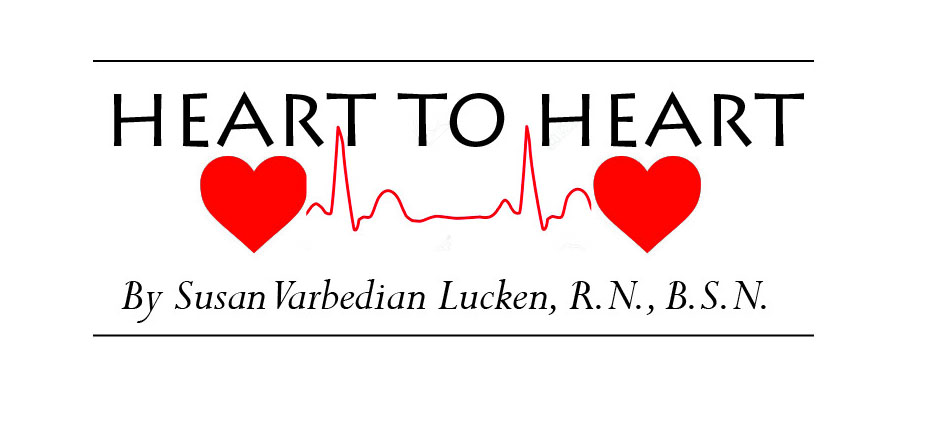
By Susan Varbedian Lucken, R.N., B.S.N.
According to the Cleveland Clinic, about 20 million Americans have some form of thyroid disease. People of all ages and races can get thyroid disease. However, women are 5-8 times more like-ly than men to have thyroid problems.
The thyroid is a small, butterfly-shaped gland that sits in the middle of the lower neck. It’s primary function is to control the body’s me-tabolism. A properly functioning thyroid will maintain the right amount of hormones needed to keep the body’s metabolism func-tioning at a satisfactory rate.
When the thyroid produces too much hormone, the body uses energy faster than it should. This condition is called HYPERthyroid-ism. When the thyroid doesn’t produce enough hormone, the body uses energy slower than it should. This condition is called HYPOthyroidism. There are many different reasons why either of these conditions might develop.
Conditions that cause HYPOthyroidism
Conditions that cause HYPERthyroidism
Symptoms of HYPOthyroidism
Symptoms of HYPERthyroidism
Thyroid disease can be difficult to diagnose because symptoms are easily confused with other conditions. Fortunately, there is a blood test called the thyroid stimulating hormone (TSH) that can identify thyroid disorders even before the onset of symptoms. When it’s caught early, treatment can control the disorder even before the onset of symptoms.The goal of treatment for any thyroid disorder is to restore normal blood levels of thyroid hormone.
HYPOthyroidism is treated with a drug called levothyroxine ( Synthroid ). This is a synthetic hormone tablet that replaces miss-ing thyroid hormone in the body. Your doctor will monitor you closely and adjust your dosage accordingly so that you can return to your normal lifestyle.
HYPERthyroidism is generally more difficult to treat. It requires the normalization of thyroid hormone production. Treatment could in-volve drug therapy, radioactive iodine treatment or even surgery. The most popular treatment is radioactive iodine which often re-sults in HYPOthyroidism which would require synthroid.
Thyroid diseases are lifelong conditions, but with careful manage-ment, people with thyroid disease can live healthy, normal lives. In most cases, you can’t prevent hypothyroidism or hyperthyroidism, but you can prevent its complications by getting diagnosed right away and following the treatment your doctor prescribes. If you are experiencing any of the signs and symptoms described earlier, talk with your doctor who will do a complete workup to determine if you have thyroid disease.
Sources: my.clevelandclinic.org